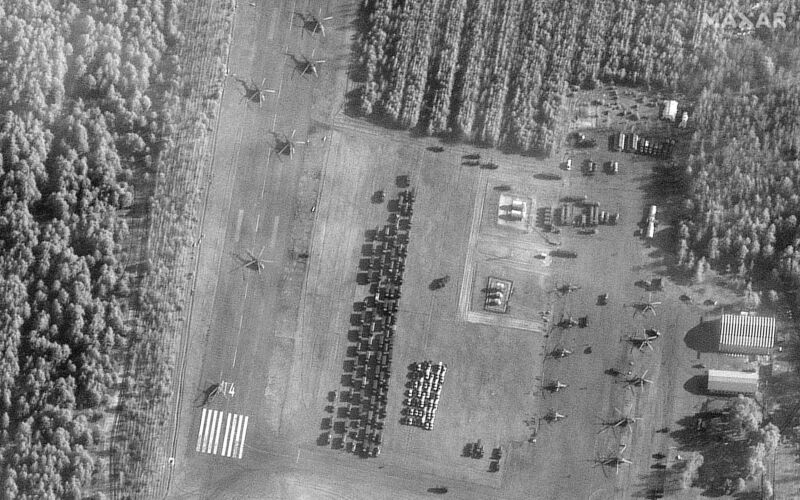Ukrainian businessman Max Polyakov during a 20-minute conversation with journalists on Monday evening was emotional, and sometimes angry, talking about the attack of the Russian military on his homeland.

“There will be an attack on Kyiv again within an hour,” Polyakov said, insistently pointing at his watch. “We need the data now.”
The data in question are real-time images from commercial satellites that flew over Ukraine. Polyakov called on the operators of these satellites (first of all, Western companies that sell data to the government and private clients) to share their data with one of his companies — EOS Data Analytics.
Polyakov noted that EOS would quickly process and analyze the data for the passage of troops by Ukraine before sending the information to the Ministry of Defense of Ukraine and the Ministry of Digital Transformation. According to him, EOS has the ability to quickly distinguish between 18 different types of Russian military vehicles.
“Right now we need to have this intelligence data,” he said. “Every night we are bombarded, but in the dark we are blind. We need this data, please.”
Polyakov noted that in recent days, commercial companies have been putting high-resolution satellite images into open access to demonstrate their capabilities. He admitted that the quality of the images is impressive, but such releases are more useful for informing the public, but have no practical application for the Ukrainian military. According to Polyakov, these data are often two or three days old.
“We don’t need to know where the Russian tanks were two days ago,” he said.
He also referred to the need for a special type of data that get from satellites with synthetic-aperture radar (SAR) and are becoming more and more popular in recent years. In contrast to passive optical devices that collect data in the visible, near-infrared and short-wave infrared regions of the spectrum, these satellites emit their own energy. Then they record the energy reflected from the Earth’s surface.
The main advantage of satellites with SAR is that they can collect data day or night, despite the clouds. Polyakov noted that SAR satellite data are important for understanding the movement of Russian troops and equipment at night, and noted that clouds cover about 80 percent of Ukraine’s territory during the day.
Polyakov appealed to Planet Labs, Maxar Technologies, Airbus, SI Imaging Services, SpaceView, BlackSky, Iceye, Capella and other companies that can provide the necessary data.
During a conversation with journalists, Polyakov admitted that his request was “aggressive”. But it is difficult to deny the passion with which he is trying to protect his homeland.
It is not yet known how commercial companies will react. It’s really the first great war in which commercially available satellite images have played a significant role in providing open information about troop movements, military buildup in neighboring countries, refugee flows, etc.
Previously, such data was private and collected by only a few countries. The role of such a powerful, widely available technology has not yet to be defined in the field of military operations, and it is unclear whether private companies are ready to freely transfer “raw” data to another commercial company with the intention to help one of the parties of the conflict.
But we’re about to find out.
According to https://arstechnica.com.
